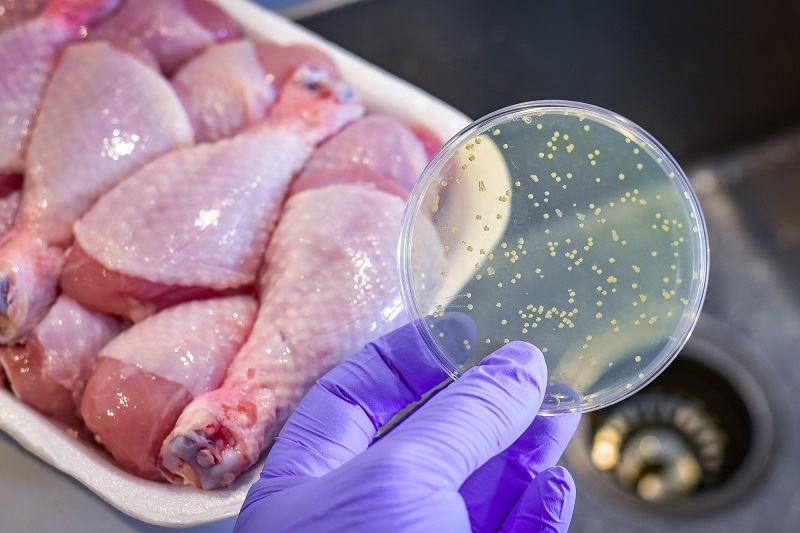Food Recalls: Causes and Dangers

September 01, 2022
When manufacturers discover that their food may make people ill, they issue recalls.
A food safety recall is an alert to help people avoid getting sick. If you’ve purchased food that’s later recalled, it’s important not to eat it. You may not want to waste food, but it’s safer to return or dispose of recalled items.
“Some foods that are recalled contain dangerous contaminants that could cause food poisoning,” says Harry Kopolovich, M.D., chairman of the Department of Emergency Medicine at Jersey Shore University Medical Center. “Other foods may contain unlisted allergens or foreign objects.”
Common Causes of Food Recalls
Manufacturers voluntarily recall food products when they may be hazardous to customers. There are several reasons why this may happen.
Recalled foods may be:
- Contaminated with salmonella, listeria, E. coli or other bugs
- Mislabeled
- Made with allergens that aren’t listed on the label
- Accidentally laced with metal shavings, glass shards, plastic or other foreign objects
The top three reasons why foods were recalled during 2021 in the U.S. were:
- Product contamination (48%)
- Misbranding (27%)
- Unreported allergens (16%)
Some food recalls only affect products sold or distributed in one state or region. Other recalls affect foods that are sold nationwide.
Common Foods That Are Recalled May Include:
- Fresh produce (fruits and vegetables)
- Dairy products
- Seafood (fish and shellfish)
- Meat
- Poultry
- Processed meat
- Nuts and nut butters
- Baked goods
Recalls only affect specific items – occasionally only those with certain expiration dates. Typically, if one brand’s products are affected; other brands are safe.
“Food recall announcements should list the recalled product’s brand name, lot number and expiration date,” says Dr. Kopolovich. “If the food you have matches the announcement, don’t serve or eat it.”
Common Risks of Eating Recalled Food
It’s dangerous to consume recalled food. People may become sick, need to be hospitalized or even die, in certain cases.
Eating recalled foods may cause digestive woes or allergic reactions. If the food contains foreign substances, it could scrape the digestive tract from within.
Common dangers linked to eating recalled food may include:
- Food poisoning
- An allergic reaction, including anaphylactic shock
- Internal bleeding or damage to the esophagus, stomach or intestines
What to Do if You Have Recalled Food at Home
Some food recalls are so widespread, they make the evening news. Others are less well known, unless you hear about it from friends.
Different government agencies have websites where food recalls are listed. To find out details about recalled foods, you can visit:
- FoodSafety.gov
- U.S. Department of Agriculture’s Food Safety and Inspection Service
- Centers for Disease Control and Prevention: Food Safety
- Food and Drug Administration's Recalls, Market Withdrawals and Safety Alerts
- You can also follow the U.S. Food and Drug Administration's recalls Twitter account for live updates.
If you think your food was recalled, check the lot number and expiration date. You may or may not have a part of the brand’s affected batch.
Often, when a food is recalled, people are told to throw the item away. If you’ve already cooked the food, throw that meal away to avoid harm.
In some cases, manufacturers may offer a refund to customers who purchased recalled food. You may be able to return it directly to the supermarket where you bought it.
Staying informed about food recalls can help you keep your family safe.
“If someone in your home has a food allergy, stay up-to-date on food recalls,” says Dr. Kopolovich. “Checking food recall websites regularly, or signing up for alerts, can be life-saving.”
Don’t Eat Food From a Dented or Swollen Can
“In addition to keeping watch of food recalls, be mindful of the condition of the containers your food is in,” adds Dr. Kopolovich. “If it’s canned, and you notice the can has been dented, punctured or is swollen, throw it away.”
- Swollen cans can indicate the food inside has spoiled
- Deep dents can allow bacteria to enter through the seam
Food from a damaged can can lead to botulism – a deadly form of food poisoning that attacks the nerves and can lead to difficulty breathing, muscle paralysis, or even death.
“Once a seal has been broken, whether it’s bagged or canned, the food has been exposed to air and other pathogens which can lead to spoiling and bacterial growth,” concludes Dr. Kopolovich.
Next Steps & Resources:
- Meet our source: Harry Kopolovich, M.D.
- To make an appointment with a doctor near you, call 800-822-8905 or visit our website.
- U.S. Department of Agriculture’s Food Safety and Inspection Service
The material provided through HealthU is intended to be used as general information only and should not replace the advice of your physician. Always consult your physician for individual care.
Find a doctor near me

7 Ways To Avoid Food Poisoning, and What to Do If You Get Sick
Whether you’re preparing an elaborate meal for your family or quickly cobbling something together on a weeknight, the last thing that you want to do is make anyone in your household sick.

How to Prepare for an Emergency
Prepare for emergencies. Learn essential steps for family safety & kit creation. Expert advice from Scott Skrivanek helps you create a plan. Get started today.
Find a doctor near me

Can You Prevent Osteoarthritis?
Prevent Osteoarthritis? Learn how to reduce your risk and manage symptoms with expert advice from Dr. Randolph Sanchez. Call 800-822-8905.

Top 3 Reasons to See a Primary Care Physician
Maintain your health with a primary care physician. Dr. Gusler explains top reasons for regular checkups. Schedule your appointment today!

When to Seek Care for a Fever
High fever? Learn when to seek care. Dr. Shim explains fever symptoms needing medical attention for adults and children. Get help now.

5 Questions to Ask Your Physician at an Annual Physical Exam
Getting an annual physical exam is an important step in staying healthy. It’s an opportunity to touch base with your primary care physician while you are healthy so you can stay that way.
